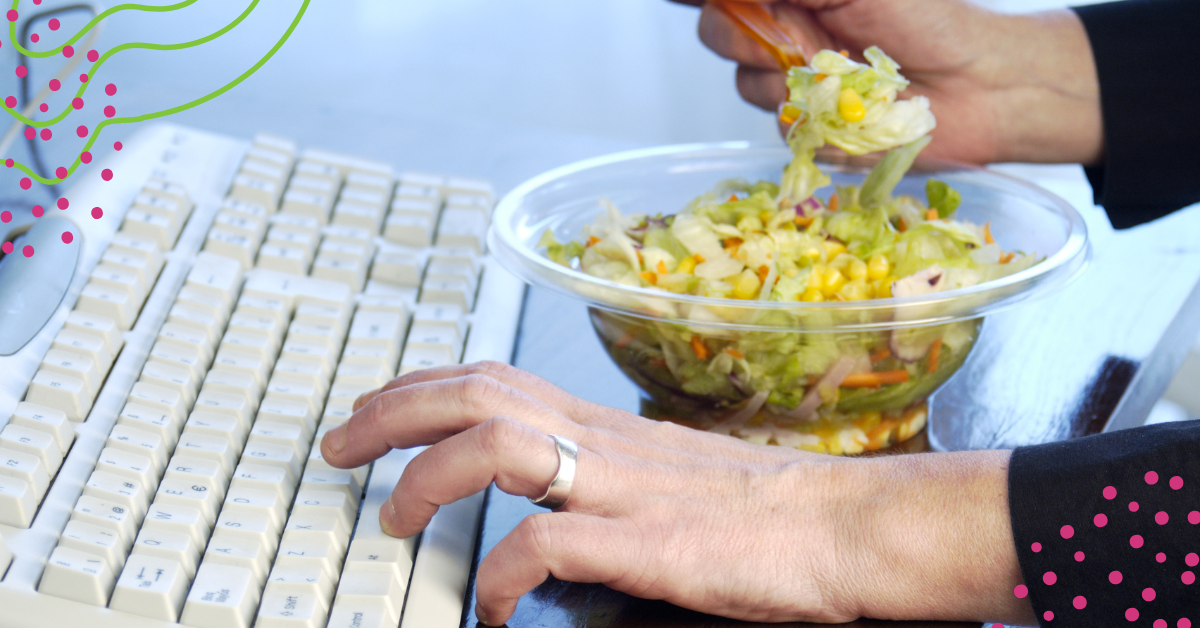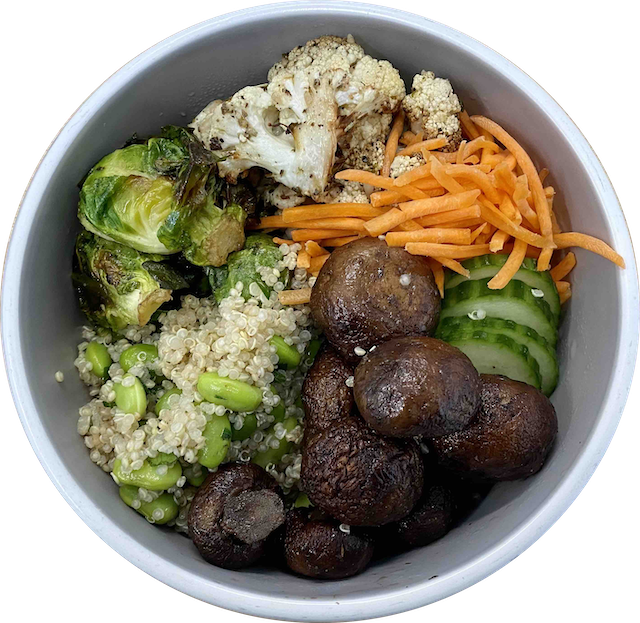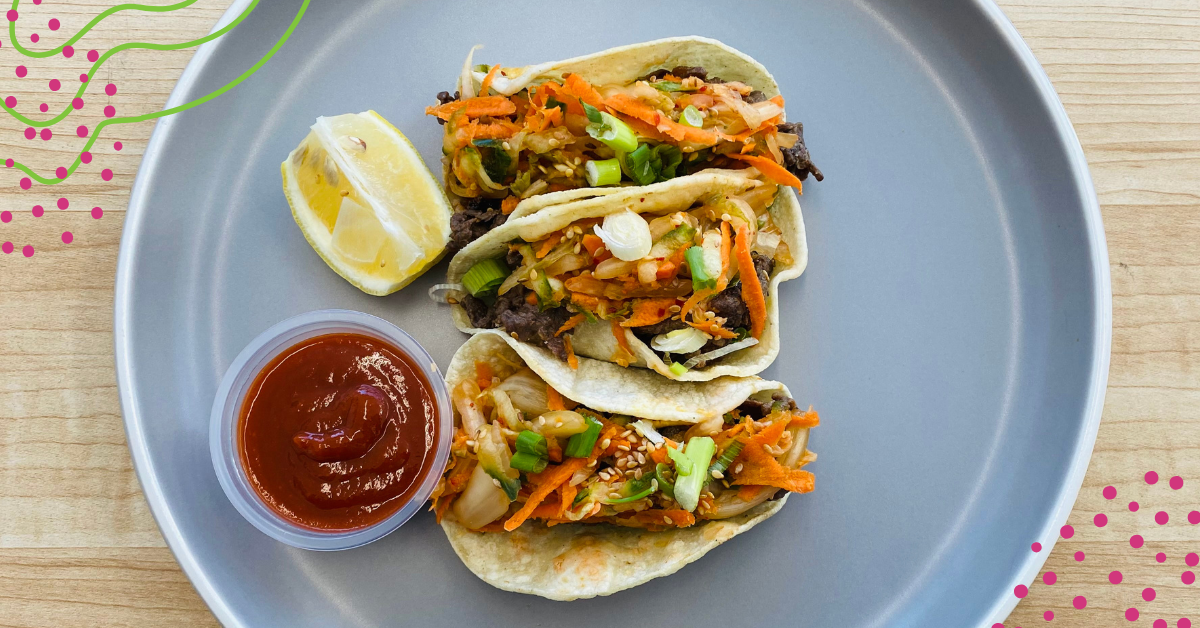Is it possible to eat healthy when you’re busy? When all know the way that “the crunch” of life can leave us reaching for something crunchy and sweet. While snacks and comfort foods can feel like self-care at the moment, they often leave us feeling tired, irritable, and less productive after the rush wears off. This creates an unhealthy cycle of continuously reaching for processed foods for “quick energy” before crashing again.
How Do Busy People Manage to Stay on Top of Their Healthy Eating Habits?
It takes accountability, planning, and a willingness to get creative when it comes to powering through the common pitfalls that make smart food choices fall to the wayside. The truth is that being too busy to eat healthy foods isn’t just an excuse. This is a real challenge that many people face daily as they try to juggle work and home life demands. Luckily, there are some tips that can change everything.
Take a look at the life hacks people use to eat healthy even when there’s no time.
Start Every Single Morning on the Right Track
From a psychological standpoint, getting back on track can be very hard once you start the day in the wrong place. Breakfast sets the pace for the choices you’re going to make for the rest of the day.
First, there’s the mental impact that the first bite of the day makes. If we’re reaching for a big, sugary, sticky bun because it feels like an easy choice, we may feel that trying to eat healthy for the rest of the day is “pointless” because we’ve already gone off track.
The wrong breakfast can also sabotage us on a physiological level. The truth is that a dessert-like breakfast will send us on a downward crash just a few hours after breakfast. That means we’re likely to be hungrier than we would have been with a breakfast choice that provided steady energy.
How do you fix the breakfast trap? Protein is great for this! You’ll also want to focus on breakfast items with fiber that will help you stay fuller. Some breakfast items that can help you to feel full and satisfied in the morning without setting you up for a crash include egg scrambles, overnight oats, and whole-egg frittatas.
Carbs aren’t necessarily off the table just because you’re focused on avoiding the spike that often comes from eating bread and cereals in the morning. It’s all about how you balance the right carbs with protein. For instance, avocado toast, banana pancakes, and a bagel topped with salmon and cream cheese can create sustained energy.
Never wake up surprised! What that means is that you should always have your breakfast planned a day in advance to avoid the “panic” of having to find something healthy to eat in a pinch while trying to get out the door. Don’t go to bed without having breakfast waiting in the fridge.
Don’t Undereat
One common mistake people make when trying to eat healthy on a very tight schedule is to undereat. This often leads to overeating later in the day. For example, you might rely on a restaurant near your office because it’s the “easiest” way to get lunch. You settle for a flimsy salad that consists of little more than lettuce, some cucumber slices, and a handful of tomato cubes because you’re trying to “eat healthy.” The problem with this is that you’re simply not eating enough of what your body needs for fuel. Have a real lunch when you’re having lunch! This could mean a quinoa salad, chick-pea salad, Korean BBQ wrap, chicken fajita, or Buddha bowl.
Keep Your Kitchen Organized
While the status of your kitchen may seem unrelated to your health, the truth is that you can’t know what to eat unless you know what there is to eat. We often lose track of the healthy ingredients we’ve stocked away because they aren’t in our direct line of sight.
A highly organized fridge is one of the ways that many healthy eaters stay on track. One tip is to reserve an organized area of your fridge specifically for meal-prep foods that are labeled by day. This eliminates the potential for making an impulsive choice because your meals have been carefully planned for you based on what day it is. You won’t have to dig through the rest of your fridge to put ingredients together because it’s all waiting for you in a designated spot.
Eat Plenty of Unprocessed Foods
Making a commitment to focus on unprocessed foods is one of the best ways to stick to a healthy eating plan. Prioritize whole grains, vegetables, fruits, seeds, and nuts over other types of foods. These foods add fiber and nutrients to your diet that can help to promote weight loss, maintain bowel health, keep blood sugar levels in check, and lower cholesterol levels.
Eat the Same Portions Every Day
Consistent portions help you to keep your appetite regulated. When we change up portion sizes, we are often left feeling either “bloated” or “peckish” when a meal is over. While this doesn’t mean you need to eat the same thing every day, it does mean that trying to stay in the same portion range every day for breakfast, lunch, and dinner can help you to enjoy consistent rates of fullness each day.
Eat at the Same Time Every Day
This next tip goes along with keeping the same portion sizes for each meal. Eating meals at the same times each day helps you to work healthy eating into your daily routine. This can be especially important during times when it feels like long, busy work weeks are sweeping us up in a wave that we can’t control.
Don’t work through dinner! Scheduled mealtimes help to create a sense of control and balance during times of intense busyness. In addition, having a set mealtime means planning each meal intentionally instead of waiting until you’re overly hungry to decide what to eat.
Make a List
Never underestimate how much being busy can cause you to get off track with even the simplest things in life. Once you find a meal that works for your tastes, be sure to write it down as part of a list of go-to favorites you can recreate weekly. You’ll appreciate having a list to refer to instead of trying to find the names of meals online again. This list can eventually become your meal plan for healthy eating.
Be Consistent Enough That You Can Afford to “Cheat”
There’s no need to make healthy eating feel restrictive. For many busy people, meals with other people happen pretty frequently. One of the best ways to find balance is to plan to control every meal you can control while simply making the best choices possible when you don’t have control. What does this look like? While you may only be able to plan breakfast and dinner on your own before heading out to a “work” dinner, you’ll at least have the structure in your diet that comes from staying consistent during two out of three meals a day.
Planning breakfast, lunch, and dinner for healthy eating during the week will leave you with many options for “splurging” on the weekends without feeling like you’re getting off track. When you have a weekly plan, you always know that you’ll be back on your path of healthy eating by Monday.
Use Professional Meal Planning and Delivery
There comes a point when we all have to admit that healthy eating takes commitment. Maintaining a healthy diet that also leaves you satisfied simply isn’t something that you can pull off without some planning. This is where using a professional meal planning and delivery service comes into the picture. The reason why meal planning is so popular at the moment is because many busy people have done the math on the value of their time versus the amount of time it takes to plan, create, and pack healthy meals for an entire week.
Eating healthy when you lead a busy lifestyle isn’t easy. In fact, eating habits often begin to slide when tight deadlines, long nights, and busy weekends full of commitments all fuse together to leave you with a full calendar that doesn’t leave much time for planning, cooking, and storing your meals.
While it can be easy to let busyness become an excuse for not eating the best foods possible, proper planning is the key to enjoying the health benefits that come from keeping yourself accountable for your nutritional choices.







